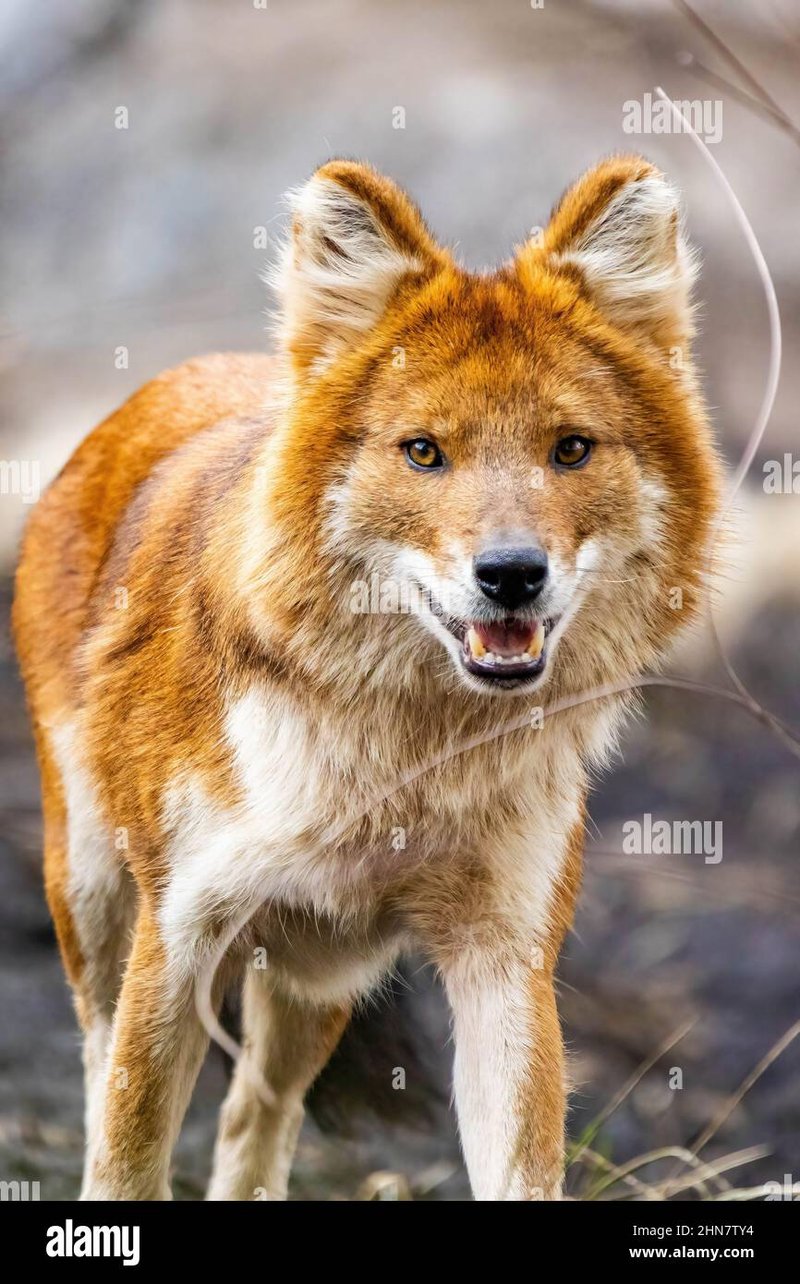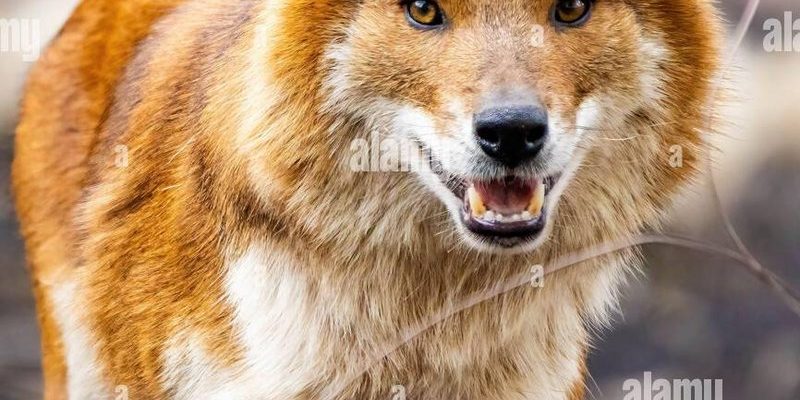
Dholes, also known as Asiatic wild dogs, have a reputation for being clever hunters and skilled communicators. They rely on teamwork and social structure, much like humans do in a workplace. So, you might be wondering: just how smart is a dhole? Let’s dive into their cognitive abilities and behaviors to understand how they operate both individually and as a part of their packs.
Understanding Dhole Intelligence
The intelligence of dholes can be measured in various ways. Unlike many other canines, their intelligence goes beyond mere instinct. Dholes demonstrate a form of learning and adaptability that’s fascinating to observe. Here’s a breakdown of how their brains work.
– Social Structures: Dholes are social animals. They live in packs, which can range from 5 to 12 individuals. This pack mentality helps them strategize and communicate during hunts. The ability to coordinate effectively showcases their cognitive skills.
– Communication: Dholes use a series of vocalizations, body language, and scent markings to communicate with each other. They can express everything from warnings about predators to calls for bonding and play. This complex communication system indicates high cognitive functioning.
– Learning from Experience: Like other intelligent species, dholes can learn from experiences. If a hunting strategy doesn’t work out, they’re likely to adjust their methods. This learning behavior is a strong indicator of intelligence in the animal kingdom.
Hunting Strategies and Tool Use
Dholes are known for their efficient hunting strategies, often working as a united front to take down prey. Their intelligence shines through in how they approach hunting situations.
– Team Coordination: In a hunt, dholes use complex strategies that require team coordination. Some pack members may distract prey while others flank from the sides. This teamwork isn’t just instinct; it’s a learned behavior that takes practice and intelligence to execute successfully.
– Adaptability: Depending on the prey they’re targeting, dholes can adjust their tactics. For instance, they may adopt different approaches for smaller animals versus larger ones. Their ability to switch tactics demonstrates problem-solving skills.
– Persistence: Hunting often requires patience and persistence. Dholes are known to track their prey for long distances, showing a level of determination and strategic thinking that emphasizes their cognitive abilities.
Social Behavior and Pack Dynamics
The social structure of dhole packs is another area where their intelligence shines. Understanding their relationships can give you insights into their behavior and cognitive capabilities.
– Hierarchical Structure: Dholes live in a social hierarchy, with an alpha pair leading the pack. This structure helps maintain order and allows for efficient decision-making when it comes to hunting or defending territory. It’s like having a team leader who organizes everyone for a group project!
– Cooperative Care: Members within the pack often help care for each other’s young, showcasing empathy and emotional intelligence. This behavior isn’t just about survival; it reflects their understanding of social bonds.
– Play and Learning: Young dholes learn skills by playing with each other. They engage in mock hunts, which teach them essential hunting tactics. This playful behavior highlights the importance of social learning in their development.
Problem-Solving Abilities
Dholes have shown impressive problem-solving skills, which some researchers believe puts them on par with other intelligent mammals.
– Navigating Challenges: Dholes often face obstacles in their environment, such as dense forests or rival packs. They need to find ways to navigate these challenges, which requires cognitive flexibility.
– Finding Food: When food is scarce, dholes can figure out how to access different types of prey or even scavenge when needed. Their adaptability showcases an ability to think critically under pressure.
– Using the Environment: Like many clever animals, dholes can utilize their environment to their advantage. For example, they might use terrain features to hide from predators or to ambush prey, displaying practical intelligence.
Comparing Dhole Intelligence to Other Canines
If we stack up dhole intelligence against other canines, things get really interesting. Let’s see how they compare.
– Dholes vs. Wolves: Wolves are often hailed as intelligent hunters, but dholes demonstrate similar, if not superior, teamwork and adaptability in their hunting strategies. Dholes can be more efficient in smaller packs, making them quite effective hunters.
– Dholes vs. Domestic Dogs: While domestic dogs have been bred for specific tasks—like herding or companionship—dholes retain their natural instincts. They possess a raw intelligence that stems from survival needs, making them fascinating to study.
– Unique Adaptations: Each canine species has evolved different types of intelligence suited to their environments. Dholes’ social and hunting behaviors emphasize their unique adaptations to their habitats in Asia, showcasing intelligence that fits their lifestyle.
Conservation and Future Research
Understanding dhole intelligence is not just an academic exercise; it plays an essential role in conservation efforts. As their habitats shrink and populations decline, studying their cognitive abilities could help us protect them better.
– Targeted Conservation Efforts: By appreciating their complex social structures and behaviors, conservationists can develop strategies that prioritize the needs of dhole packs. This includes protecting their habitats and ensuring they have access to adequate prey.
– Research Opportunities: There remains much to learn about dhole cognition. Ongoing research can reveal insights into their behaviors, social dynamics, and adaptability, which might help refine conservation strategies.
– Awareness and Education: Educating the public about the intelligence of dholes can foster empathy and support for their conservation. When people understand the social and cognitive complexity of these animals, they may be more inclined to protect them.
In summary, dholes are more than just wild dogs—they’re intelligent, social creatures with fascinating cognitive abilities. Their problem-solving skills, team dynamics, and unique communication methods paint a picture of an extraordinary animal that’s well adapted to its environment.
As we recognize the intelligence of dholes, we also see the importance of protecting them. Understanding their behaviors and cognitive strengths can help ensure these remarkable animals continue to thrive in the wild. So, the next time someone asks you about dholes, you can confidently share that these clever canines are not only smart but also vital to their ecosystems.

